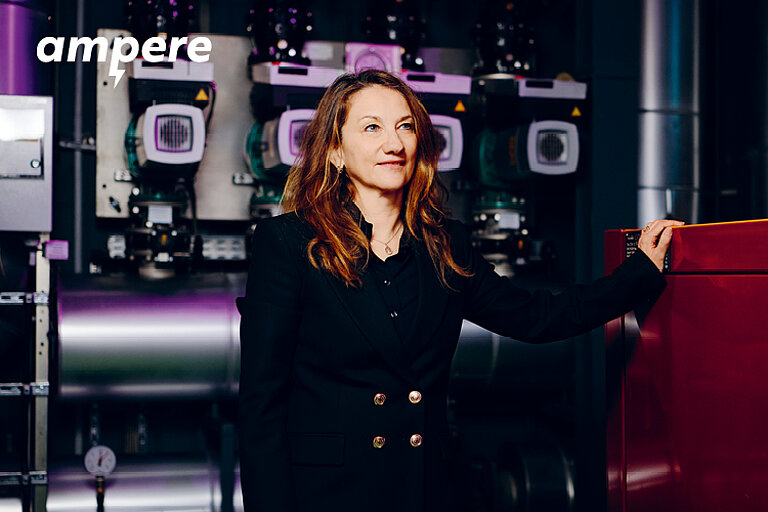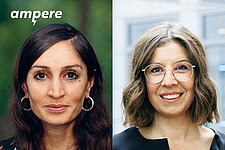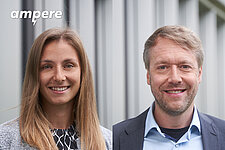How would Schneider Electric benefit from promoting start-ups? After all, young talent would still not be working for you?
At some point they will come to us (laughs). Seriously, we have been dealing with this topic for a long time. Here in Berlin, we have founded a start-up ourselves, Inno2Grid, with which we are working on sustainable mobility solutions and a future-proof energy supply. This enables us to attract many talented people who can later work at Schneider Electric. We have also founded SE Ventures, a venture capital fund, which we have endowed twice with 500 million euros each time. We are invested in around 50 start-ups there.
You are currently implementing a 300 million programme to invest in your factories in the USA. Are the conditions there better than in Europe?
At Schneider Electric, our philosophy is “In the market for the market”, which is why we want our factories to be close to the markets. We also learnt how important this is during the Covid pandemic. Now there are two additional factors. On the one hand, the data centre market, one of our core markets, is booming in the USA, and we need capacity for this. On the other hand, the need for “Made in America” is growing, especially in areas that are driven by the government, such as water supply or other infrastructures. These investments therefore do not mean turning away from the EU, but towards the market, especially as we have also invested massively in Europe.
Schneider Electric offers many sustainability solutions. Investing in this area makes a lot of sense, but is sometimes also expensive. Can sustainability and prosperity be combined in the long term?
I am absolutely convinced of that. Ultimately, it is an investment in digitalisation and this is essential in terms of competitiveness, company resilience and value retention. In the medium term, it is always worth investing in energy efficiency measures. After all, the best way to achieve climate targets is not to consume energy in the first place. We have to think about the long term, especially in the building sector. In purely economic terms, this is also worthwhile: According to a study by the Boston Consulting Group, environmental technologies are expected to create a ten-trillion-euro market by 2050.
The investments are also worthwhile because they are amortised quite quickly. How can companies be motivated to think more long-term in this area, too?
A lot of it starts with an understanding that all the key technologies are available today to make buildings and – to a limited extent – industries climate-neutral. That is why there should be better tax conditions that make it easier for companies to invest. Or there could also be incentive systems to reduce CO2 emissions. I also see the EU as having a duty here. It could launch further programmes to promote such technologies in Europe.
Finally, if you could decide which measures the EU Commission should implement first – what would be your priority?
A framework that helps us to scale projects in the energy sector. Because something like this would also be an export driver later on. Europe can once again become the market leader in this field. We also need to understand Europe much more strongly as a common economic region and sensitise people to this. It is not that easy, because it is often about fairness and transparency among each other, but also about the differences in cultures and interests. In Europe, we have to learn how to connect better and present a united front. And we need to tackle the core of the problems instead of just handing out “painkillers”. Then the EU will be and will remain a huge opportunity for us all.
Thank you very much for the interview, Ms Frei.




![[Translate to Englisch:] [Translate to Englisch:]](/fileadmin/_processed_/e/d/csm_ampere_1_2024_Chefsache_Web_750x500_01_bfa9bd6792.jpg)
![[Translate to Englisch:] [Translate to Englisch:]](/fileadmin/_processed_/5/7/csm_ampere_1_2024_Zwiegespraech_Web_750x500_Teaser_47fd1761f1.jpg)

